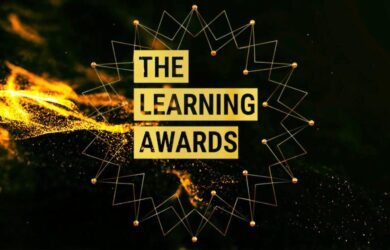One winter’s weekend in 2007, I attended a podcasting workshop with a friend. I didn’t even really know what a podcast was, but the idea of attending interesting talks online was intriguing.
During the workshop, one of the presenters mentioned a thing called “Twitter.” At the time, I had only just joined Facebook and had no clue what Twitter was or what it meant to “tweet.” “It’s just a fad,” I thought dismissively.
My First Online Community Experience
Around the same time, I also subscribed to a website called Mind Tools because it had a wide range of useful resources. As I navigated the site, I discovered a section called “Forums.” I clicked on it – and, as they say, I never looked back.
What I had discovered was a community where members of the Mind Tools Club could ask questions, brainstorm ideas, and get input and support from one another and from the forum moderators.
It became my go-to platform to air and discuss any problems I faced at work, whether it was tough career decisions, difficult employees, or awkward conversations. In return, I enjoyed helping and supporting others in the safe space that Mind Tools had created. In 2008, I joined the team as a moderator and coach.
Fast-forward to a quiet Sunday afternoon in 2014. In the preceding weeks, a Mind Tools colleague had told me that I should really consider joining Twitter, so I finally relented.
A Great Discovery
Once I had created my profile, I followed a few friends and exchanged a handful of tweets with my colleague. But I still couldn’t understand what was so special about this platform or what I could possibly get out of it.
A few days later, I noticed a thread of question-and-answer tweets on my feed. I had no idea how to participate or even if I was allowed to! However, I tried to follow along because the topic they were discussing was right up my alley. I had unknowingly stumbled upon my first Twitter chat! Little did I know that I would spearhead the #MTtalk Twitter chat only a year later.
Two Communities, Common Goals
The Mind Tools Forums were my first experience of an online community. Meeting with other participants on regular Twitter chats was the second. Although the platforms differed, I was attracted to both communities. This is why they resonated with me:
- Even though one community was on a private platform and the other was a public and global event, both expected participants to be respectful toward others.
- Community members offered two-way feedback. There was (and still is) a wonderful balance between giving and taking, asking and answering.
- The members created tight-knit, global communities that supported people despite living miles apart or in different time zones.
- I felt that both communities were safe, nonjudgmental spaces.
- It gave me the opportunity to network with like-minded people.
- Learning from people from all over the world is an enriching experience.
What Makes a Great Online Community?
During the #MTtalk Twitter chat last Friday, we talked about what makes an online community a place where you want to return. Here are the questions we asked and some of your most insightful responses:
Q1. What types of online communities do you belong to/visit?
@LernChance Online Groups from Facebook and LinkedIn – and my Team at work. We do meet online also for coffee and a chat without discussing business-related stuff.
@VardhanPande The communities related to things I am good at and related to the things I am in the process of learning.
Q2. What makes you return to an online community?
@adamkrajchir I would add I return to groups where I need expertise. This is true using Slack at work, but also Reddit groups for a variety of interests I have. I don’t live in those groups, but do go to them episodically when I have a challenge and need experts.
@ZalkaB I gladly return and feel part of a community if it feels:
- Organic (not forced), or on the calendar, To-Do;
- People are welcoming & love connecting w/each other;
- The hosts/CMGRs are active, involved, proactive, beyond their own promotion/benefit.
Q3. If you have one poor/mediocre experience with a community, will you give them another chance? Why/why not?
@J_Stephens_CPA If it’s a first experience, sure. Everyone has an off day, even a community.
@vidyarnjn Everyone deserves a second chance… a bad day at work is not intentional… surely giving a helping hand in sharing feedback would work wonders if the team desires to work on it.
Q4. What will make you leave a community that you’ve been involved with for a while?
@SizweMoyo Whenever I start thinking that I’m not growing anymore, that’s when I usually decide to get moving onto other things or, in this case, groups.
@MicheleDD_MT Lack of civility between community members. Too much “me”formation rather than information.
Q5. What characteristics do you associate with a successful online community?
@ColfaxInsurance Consistency, open communication, open-door policy (if you’re polite and contribute, or just like to watch but you’re not doing any harm, you’re welcome), and engaging the community members to contribute and work with each other.
@_TomGReid Stimulating conversation that makes you think; people who can disagree without being disagreeable; people who give freely of their time and talent without always selling something; those who mentor the newbies and help everyone grow.
Q6. What are you looking to get out of an online community?
@Midgie_MT I want to get inspiration, ideas, support, encouragement, and motivation.
@JKatzaman From an online community I’d want engagement with respect and understanding.
Q7. What are you willing to give/bring to an online community?
@Yolande_MT I’m willing to bring my heart and my ears in order to help and serve others.
@J_Stephens_CPA [In] a community where I feel the connection, I open a bit to vulnerability – even in an open community like this.
Q8. What are your expectations about how the community is managed?
@SizweMoyo As one of my favorite communities, I like the engaging and open, and informative management style of @Mind_Tools #MTtalk.
@LeadershipBEST It helps to have advance notice and reminders of chat time. The leaders set the tone for how the participants treat each other by what they share and tolerate from others.
Q9. How have your relationships with participants helped you professionally/personally?
@WonderPix Relationships made and nurtured in communities help you feel more connected… on and offline. It’s nice to know there are people and places where you are welcome.
@Ganesh_Sabari Helps me unwind and relax. Allows me to focus again on business with renewed vigor. During participation, the mind is relaxed but not idle – and it’s nice.
Q10. How can we make better use of online communities?
@MyFunnySpeaker Community is a great opportunity for wellness check-ins. People who are bonded to each other experience less loneliness and greater optimism.
@adamkrajchir You’re not going to like this, but start by just giving without asking for anything in return. Too many online communities and discussions are just veiled sales channels.
To read all the tweets, have a look at the Wakelet collection of this chat here.
Coming Up
As 2020 draws to a close, we’re going to host a series of chats called, “Reflect, Recover and Reset.” During our next #MTtalk chat, we’re going to reflect on emotional exhaustion.
In our poll this week, we’d like to know which phrase best describes how you feel when you experience emotional exhaustion. To see the poll and cast your vote, please click here.
Resources
Five Ways to Build Rapport Online
How to Handle Social Media Criticism
How to Follow Up After Networking
Maintaining a Positive Online Reputation
How to Use LinkedIn Effectively
How to Collaborate Successfully
Creating a Social Media Strategy
How to Collaborate Successfully




